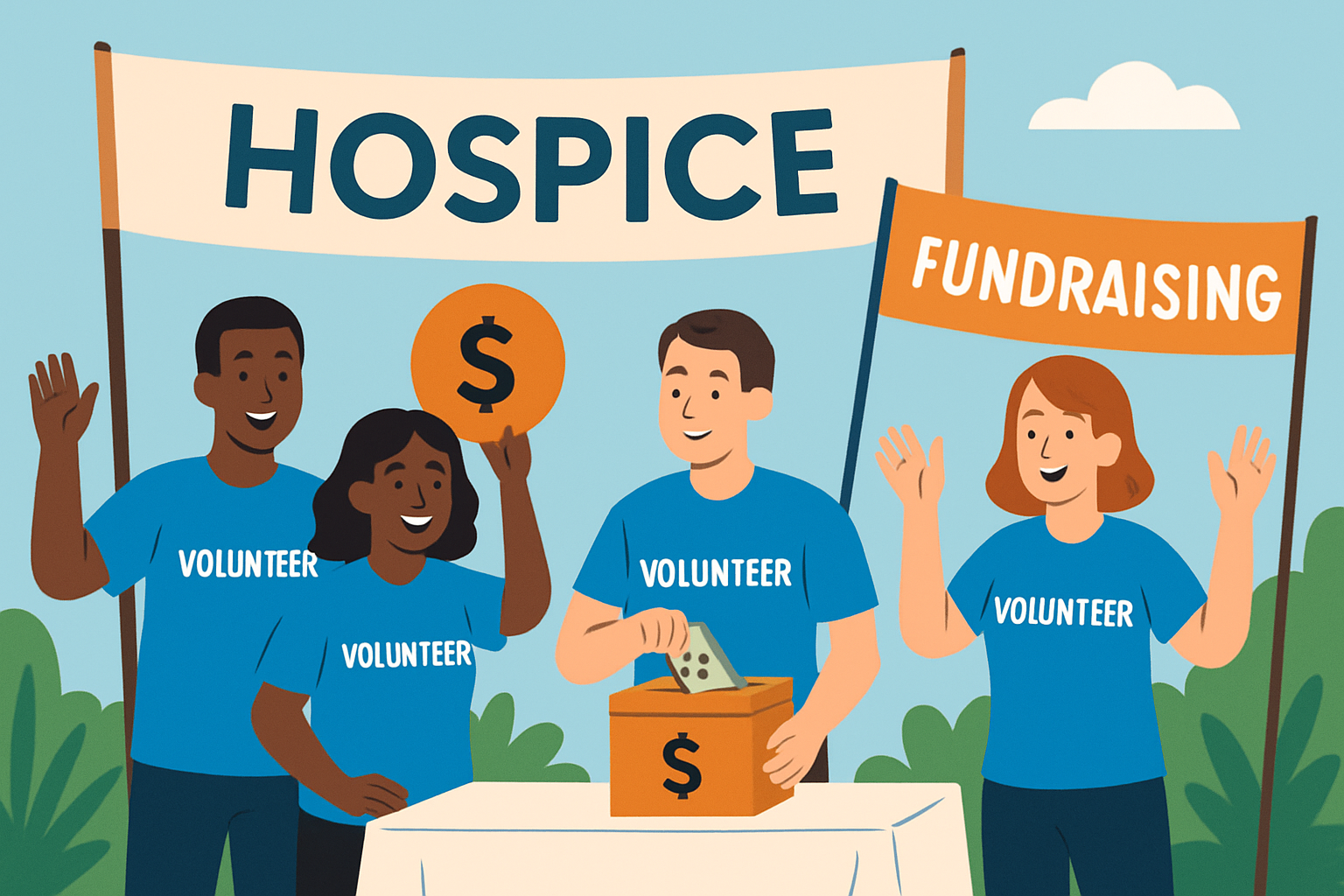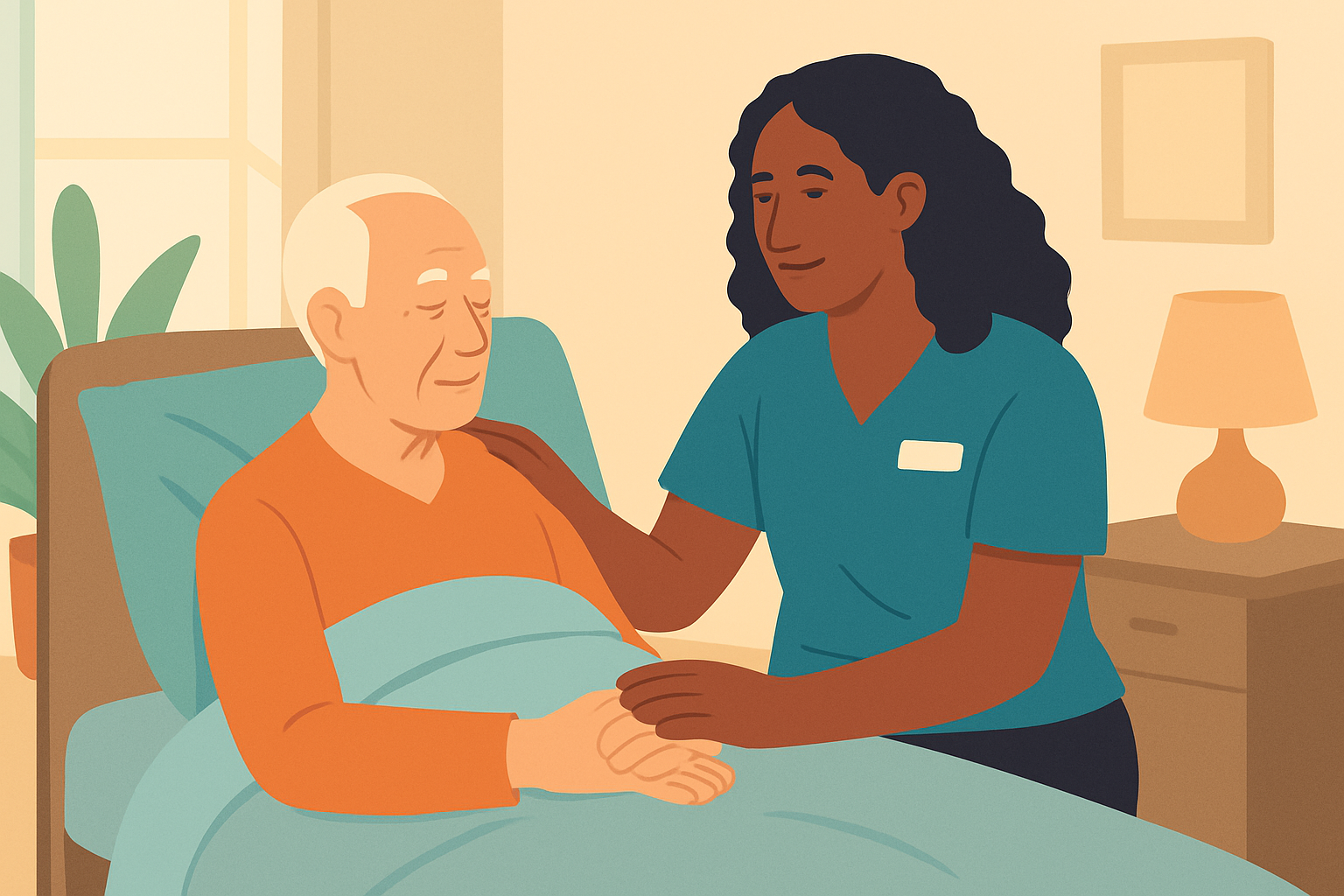Supporting Hospice Awareness Month Through Volunteering

Hospice Awareness Month observed each November is all about deepening public understanding of hospice care and the vital support it provides to patients and families facing terminal illness. This month shines a heartfelt spotlight on the compassionate whole-person approach that hospice services offer. It emphasizes dignity, comfort, and quality of life as people approach the final chapters of their journeys.
Hospice care is a special kind of care that focuses on comfort and easing pain while offering emotional support to those facing terminal illnesses. Rather than chasing a cure, the goal is to make life as good and meaningful as possible in the time left.
Taking a Closer Look at Hospice Awareness Month
Hospice Awareness Month got its start in the early 1990s as a grassroots effort by hospice providers, advocacy groups and national organizations such as the National Hospice and Palliative Care Organization (NHPCO). Over time it has grown into a campaign that raises awareness among the public and policymakers about the vital role hospice care plays at life’s end.
- Help people truly understand what hospice care is all about and clear up those common misconceptions that tend to swirl around it.
- Support the idea of hospice services as not just kind, but genuinely effective when it comes to end-of-life care.
- Highlight why getting into hospice care at just the right moment can really make a world of difference.
- Encourage policymakers to step up with solid funding and supportive laws—because hospice programs deserve nothing less.
Public education plays a key role in helping people truly understand hospice care. Too often, individuals hesitate or put off considering it because they’re not quite sure what hospice really involves or when it’s the right time to seek it leading to unnecessary struggles down the road. Boosting awareness usually opens the door to earlier referrals and smarter use of hospice benefits, which can make all the difference.
How Volunteers Genuinely Make a Difference in Hospice Care
Hospice volunteers are the unsung heroes on the caregiving team offering much-needed emotional support, heartfelt companionship and practical help that often goes beyond the call of duty. They typically spend quality time with patients and their families while easing the heavy burden of loneliness. They also take on tasks that enhance comfort and uphold dignity with genuine care.
- Spending meaningful time with patients, offering a friendly presence to help ease those tough feelings of loneliness.
- Providing a much-needed breather for family caregivers through short-term respite care, because everyone deserves a little break now and then.
- Pitching in with the paperwork and administrative tasks that can sometimes pile up in hospice settings.
- Lending a hand with fundraising efforts to help gather the resources that keep hospice programs running smoothly.
- Raising public awareness and gently educating people about what hospice services really entail, often clearing up misconceptions along the way.
- Assisting with bereavement groups or offering heartfelt support after a patient has passed, helping families navigate those fragile moments with a compassionate ear.
Hospice volunteers team up with clinical staff to offer non-medical support that really hits the mark for patients' emotional and social needs. Their presence often works wonders by lifting quality of life through meaningful interactions and easing pressure on caregivers. While medical professionals focus on managing symptoms, volunteers bring a warm and caring atmosphere that honors the whole person during final stages.
"Volunteering in hospice has truly reshaped my perspective on life and death. Offering comfort to someone nearing the end isn’t always easy — in fact, it can be downright tough — but it’s also incredibly meaningful. Honestly, it feels like a rare privilege to be present in those moments when words just don’t cut it." – Emily R., Hospice Volunteer
Meaningful Ways to Give Back During Hospice Awareness Month
Hospice Awareness Month shines a much-needed spotlight on the growing need for support and gently encourages individuals to roll up their sleeves and get involved through volunteering.
Explore local hospice programs that catch your eye and fit your schedule.
Reach out to hospice volunteer coordinators to get the lowdown on current opportunities and the application process.
Complete any necessary screenings or background checks. This small step helps keep patients safe.
Attend the training sessions offered by the hospice to feel confident in your volunteer role.
Jump into initial assignments. This might mean spending meaningful time with patients or helping at events.
Keep the momentum going by asking for feedback and seeking extra training. Take on more responsibilities when you’re ready—no rush.
- Taking part in awareness walks and community events that genuinely honor hospice care.
- Hosting or joining educational seminars to inform people and clear up common misunderstandings.
- Pitching in with fundraising efforts by organizing events or reaching out to rally donations.
- Getting involved in outreach at schools, workplaces and faith groups to spread the word about hospice awareness.
- Supporting advocacy projects that push for better hospice funding and policies to offer stronger support.
Virtual volunteering has really opened doors and made it easier than ever to pitch in during Hospice Awareness Month. Whether it’s sharing a friendly voice over the phone or catching up face-to-face on video, volunteers bring much-needed companionship. They might also dive into social media outreach or spearhead online fundraising campaigns. Some lend a hand with the tech side of virtual events. Thanks to technology, more individuals can get involved no matter where they live or how mobile they are.

Hospice volunteers actively participating in a community fundraising event during Hospice Awareness Month.
Getting Ready and Training for Hospice Volunteers What You Need to Know Before You Dive In
Hospice volunteer training programs often focus on building emotional resilience and sharpening communication skills. They also cover patient confidentiality and nurturing cultural sensitivity.
| Module | Description | Duration | Delivery Method | Certification Requirement |
|---|---|---|---|---|
| Introduction to Hospice | A deep dive into hospice philosophy paired with the core care principles that really set the foundation | 2 hours | In-person/Online | Required |
| Emotional Preparedness | Handy strategies to navigate grief and stress, while nurturing genuine empathy—because we all need a little help sometimes | 3 hours | In-person | Required |
| Communication Skills | Sharpening your active listening, fostering respectful conversations, and knowing when to say no (setting boundaries) | 4 hours | Online | Required |
| Confidentiality & Ethics | A thoughtful look at patient privacy laws and ethical guidelines—because trust is everything here | 2 hours | Online | Required |
| Cultural Sensitivity | Practical ways to support and care for individuals from all walks of life, honoring the rich tapestry of backgrounds | 2 hours | In-person | Recommended |
| Role-Specific Training | Duties customized to particular roles, whether diving into bereavement support or handling the behind-the-scenes admin tasks | 2-3 hours | Mixed | Depends on role |
Hospice volunteers are often encouraged to seek regular emotional support and draw clear boundaries. They should also connect with peer support groups to safeguard their well-being and avoid burnout.
"Continual learning and having a solid support system really are the backbone for hospice volunteers doing their absolute best. When volunteers feel genuinely appreciated and well-prepared, they tend to be not just more effective but also find a deeper sense of satisfaction—something that truly lifts everyone involved in the hospice experience." – Dr. Sarah Meyers, Hospice Program Director
The Ways Volunteering During Hospice Awareness Month Helps Support Wider Community Goals
Volunteering in Hospice Awareness Month is not just about lending a hand—it’s a meaningful way to touch lives and contribute to a cause that often goes unnoticed. By stepping up, you’re not only supporting patients and families during challenging times but also helping foster a more compassionate, aware community. It’s the kind of effort that, while it might seem small day-to-day, adds up to a bigger wave of positive change. Plus, there’s something uniquely rewarding in sharing moments of care, humanity, and understanding when it counts the most.
Volunteering during Hospice Awareness Month plays a vital role in advancing broader goals like raising awareness of hospice care and influencing thoughtful health policies. It also helps gently break down the stigma often attached to end-of-life care.
- Volunteering events help people truly understand what hospice services are about, making the care feel more approachable and less mysterious.
- As more people catch on hospice referrals happen earlier, opening the door to better access and improved care.
- Volunteers often weave support networks that connect families, patients and healthcare providers in a genuinely caring way.
- Fundraising efforts led by volunteers are important and play a starring role in securing funds to keep hospice care top-notch.
- Volunteer advocacy quietly but effectively shapes informed policies at local and national levels, boosting systems supporting end-of-life care.
Volunteer efforts during Hospice Awareness Month including community walks and educational campaigns have more often than not sparked noticeable bumps in hospice enrollment and donor support across different regions.
Getting Started with Your First Steps Toward Becoming a Hospice Volunteer
Start by digging into local hospice organizations to get a real feel for their mission and what kind of volunteer roles they offer—it's a great way to find your fit.
Reach out to volunteer coordinators by phone or through their online forms to express your interest and get details on how to apply.
Be prepared to complete any necessary background checks and health clearances. These keep everyone safe, patients included, so it’s worth the extra step.
Jump into the training sessions designed to get you ready both emotionally and practically. They’re more helpful than you might expect.
Take on your first volunteer assignments with an open mind and don’t be surprised if you need to tweak things as you get the hang of it.
Stay connected with the hospice team through ongoing education, peer support and feedback. This really helps deepen your role and keeps the experience meaningful.
Really make the most of volunteering by taking a moment to think about your own skills and interests—whether that’s offering companionship, diving into administrative tasks or rolling up your sleeves to plan events. When you find that sweet spot where what you enjoy overlaps with what the hospice truly needs you’ll usually end up feeling more fulfilled personally.

A hospice volunteer offering compassionate companionship to a patient in their home, illustrating volunteer impact.
Keeping Your Volunteer Efforts Strong Long After Hospice Awareness Month Has Passed
Volunteers have many ways to stay connected throughout the year. They can join peer groups, lend a hand with fundraising efforts, spread the word in their communities, offer advice to hospice boards, or do advocacy work to boost access to and quality of hospice care.
- Joining peer support groups to connect with others who truly get it and help take the edge off the stress volunteers often find themselves juggling.
- Rolling up your sleeves for fundraising events throughout the year, doing your bit to keep those vital resources flowing.
- Taking the lead or pitching in on public education projects that shine a light on the importance of hospice care, making sure the message hits home.
- Serving on advisory councils, where your voice actually helps shape the priorities that drive hospice programs forward.
- Diving into advocacy work aimed at influencing healthcare policies because when it comes to end-of-life care, every bit of progress counts.
During Hospice Awareness Month and beyond, long-term volunteer commitment truly plays a vital role in building stronger community support by weaving together lasting care networks that stand the test of time.
"Volunteer dedication truly lays the groundwork for hospice care. Their steady commitment doesn’t just touch patients' lives—it often becomes source of hope, inspiring communities to embrace end-of-life care with genuine kindness and heartfelt empathy." – Mark D. Jensen, Executive Director, Compassionate Care Hospice





